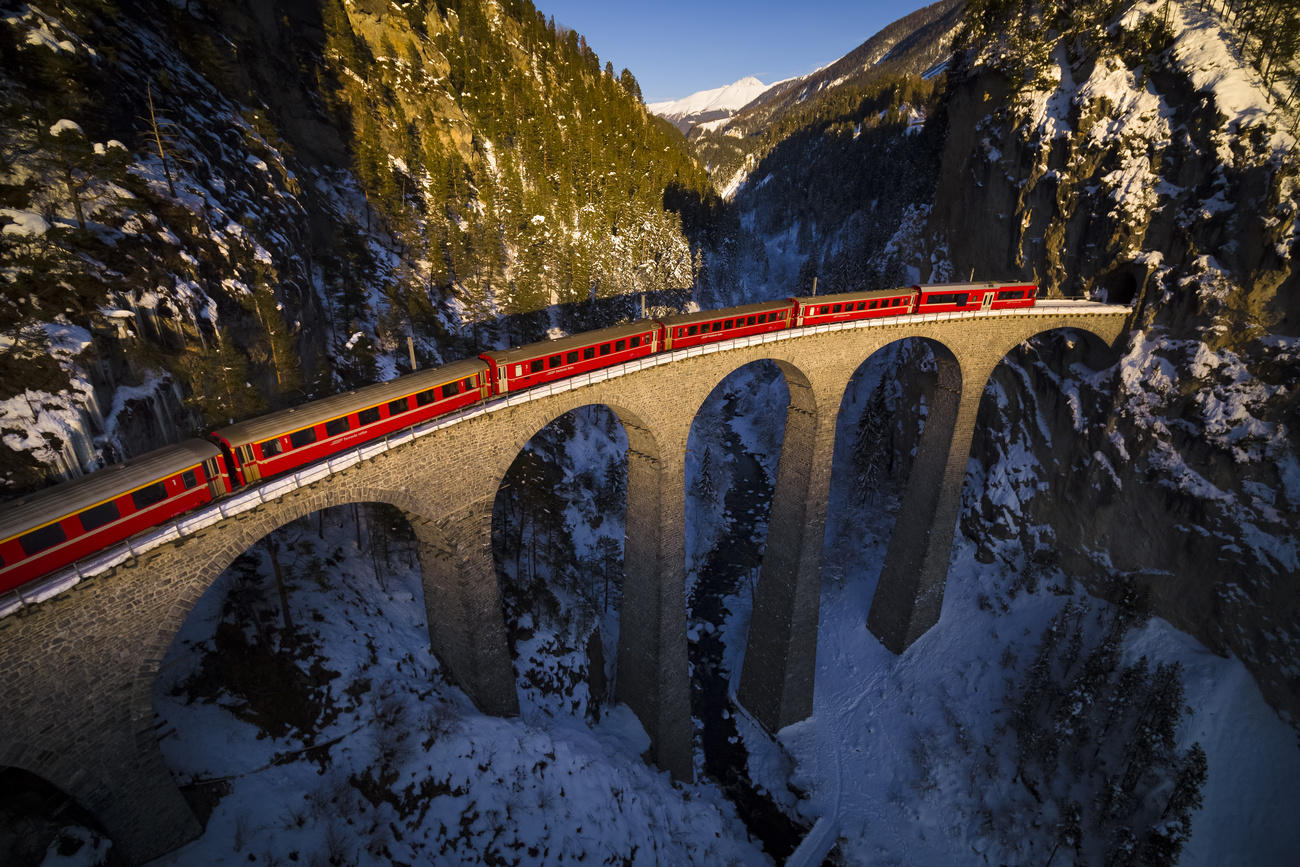
Swiss remain European champions of rail commuting

The Swiss took the train on average 71 times last year, travelling 2,398 kilometres by rail, according to the latest figures from the European Statistical Office, Eurostat. Measured by distance travelled per capita, Switzerland is a European leader.
The average train distance covered by train passengers in Switzerland last year far outstripped its nearest rivals. Austrian commuters covered 1,481 kms per capita with France weighing in at 1,393 kms, Sweden 1,324 kms and Germany 1,182 kms, EurostatExternal link calculates.
The number of train journeys per inhabitant in Switzerland (71) is almost twice as high as the next most prolific European country measured, Luxembourg (38).
Compared to 2017, Swiss rail commuting figures remained constant. In 2017, the average Swiss took 72 train trips, travelling 2,463 kms.
In the meantime, the state-owned Swiss Federal Railways continues to battle complaints about worsening punctuality. Managers insist that trains in Switzerland are among the most punctual in a European comparison but admitted that the rail system was often stretched to its limits.
The Railways is also dealing with the aftermath of a fatal accident earlier this year that saw a conductor killed by a faulty door mechanism.

In compliance with the JTI standards
More: SWI swissinfo.ch certified by the Journalism Trust Initiative





























You can find an overview of ongoing debates with our journalists here . Please join us!
If you want to start a conversation about a topic raised in this article or want to report factual errors, email us at english@swissinfo.ch.